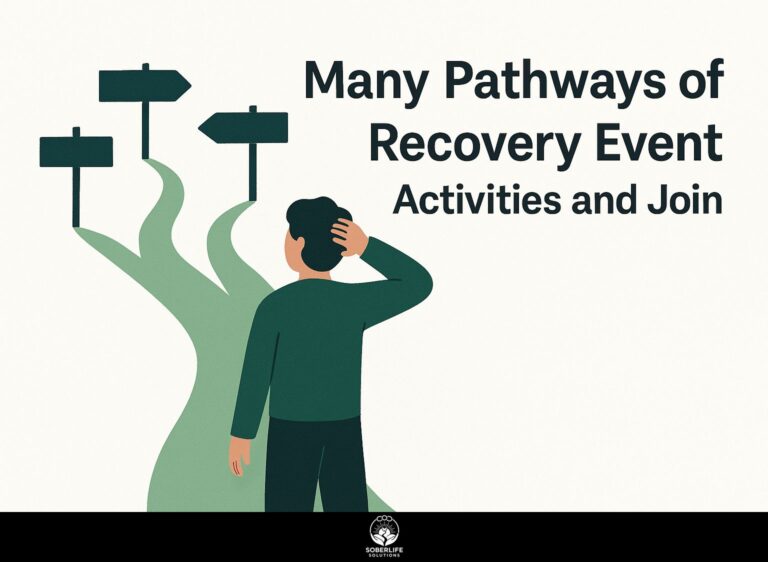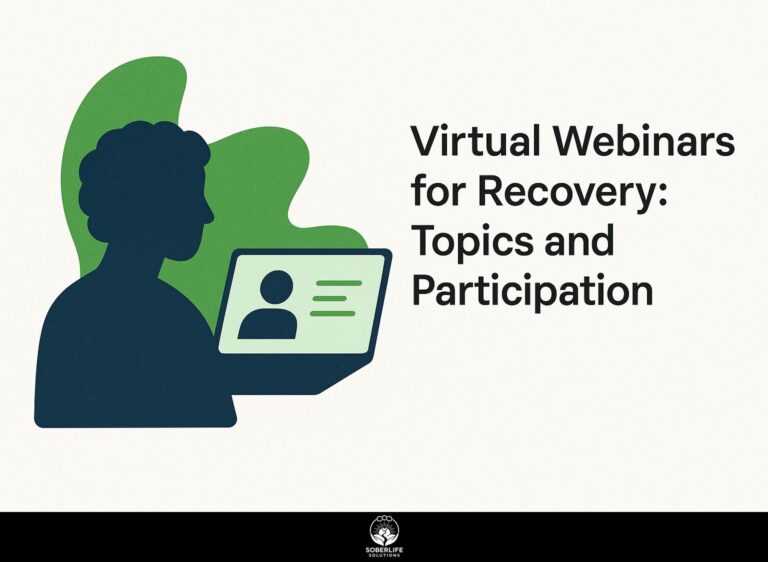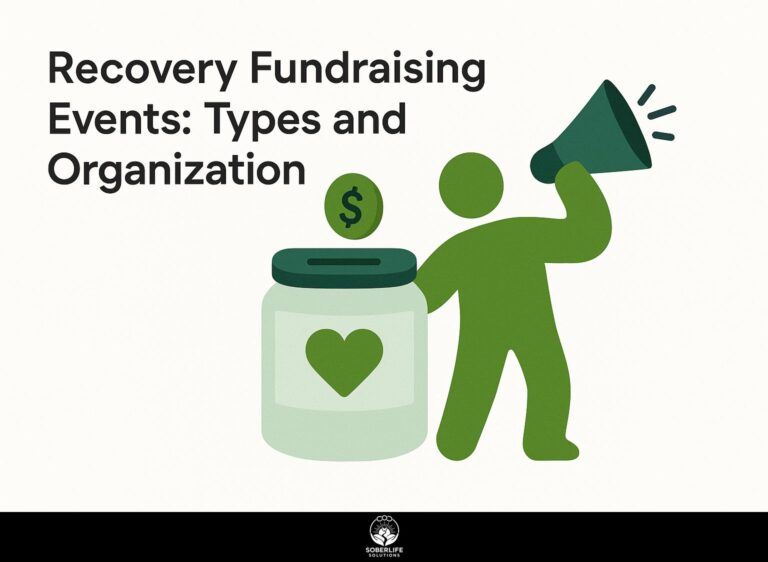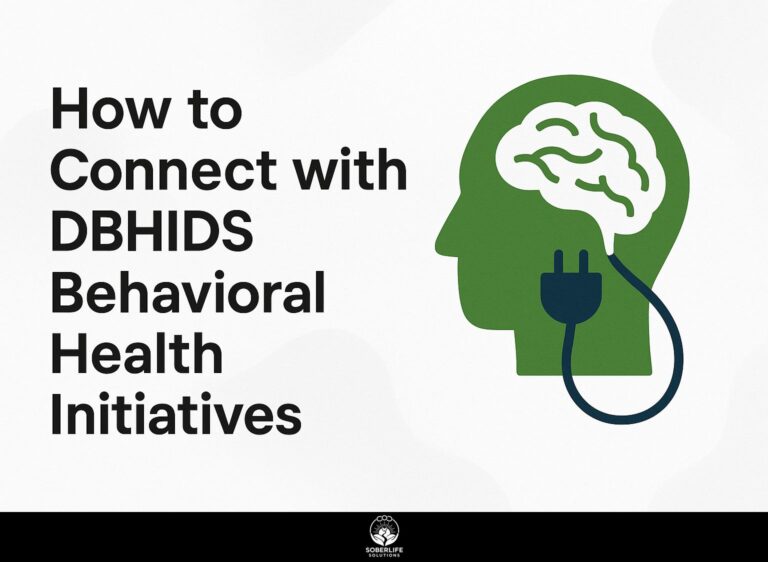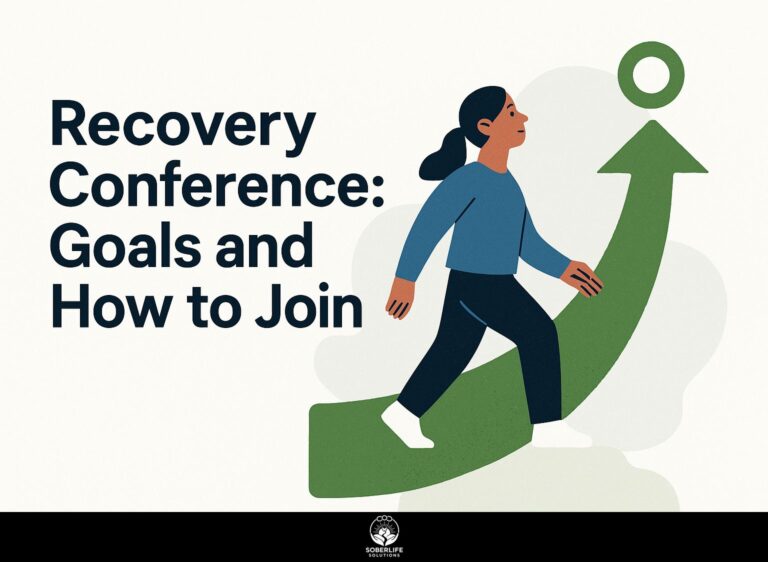Creative Ways to Celebrate Recovery: Ideas for Groups
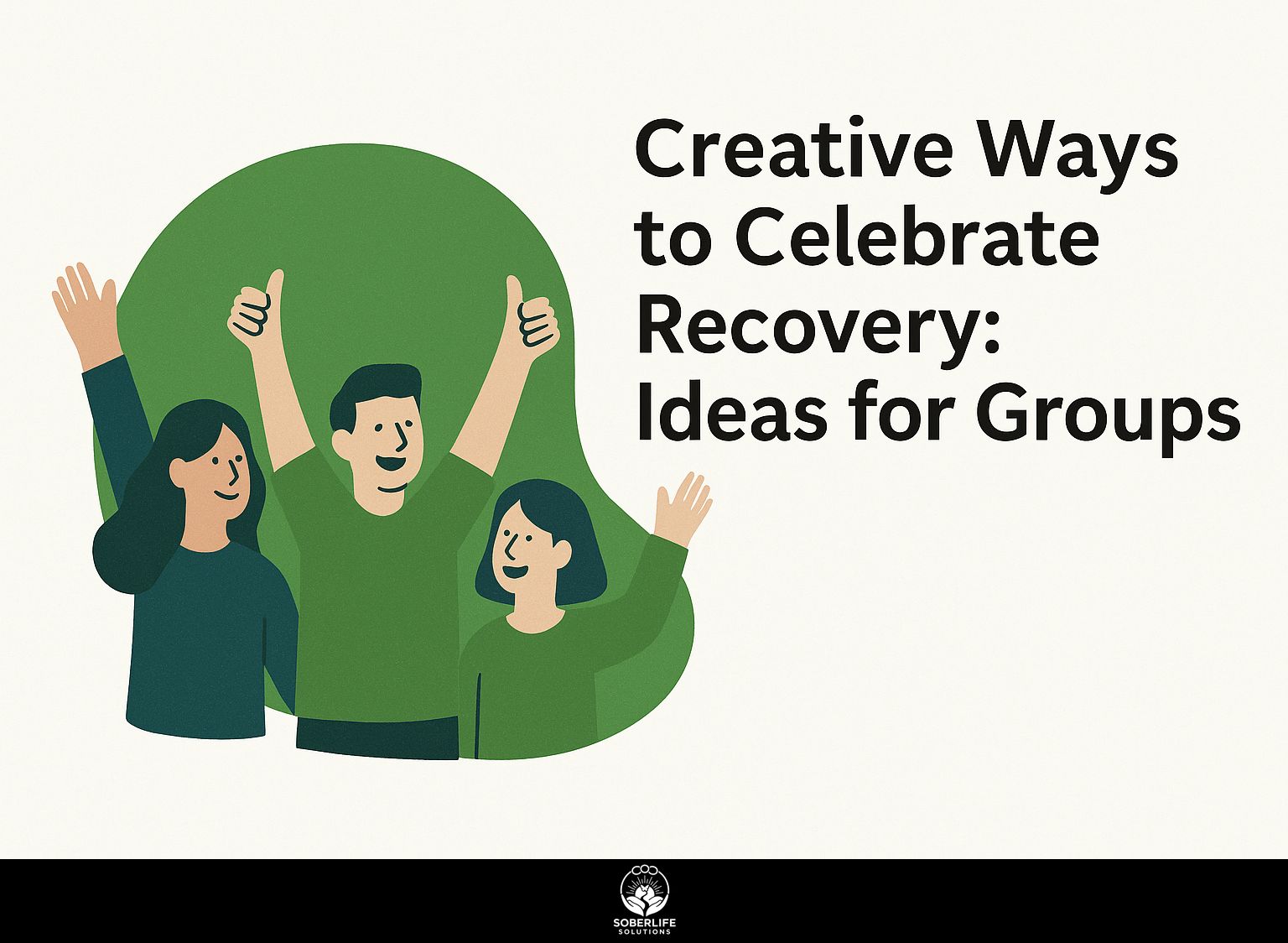
Recognizing recovery is important for building a supportive recovery community, particularly during National Recovery Month in September. This article looks at fun and meaningful ways to mark recovery, focusing on mental health benefits and personal growth. Whether you’re involved in a support group or looking for motivation from Pyramid Healthcare, find special ideas that will bring people together and improve morale. Come and participate in activities that focus on the process of recovery and recognize each success.
Key Takeaways:
Community Events
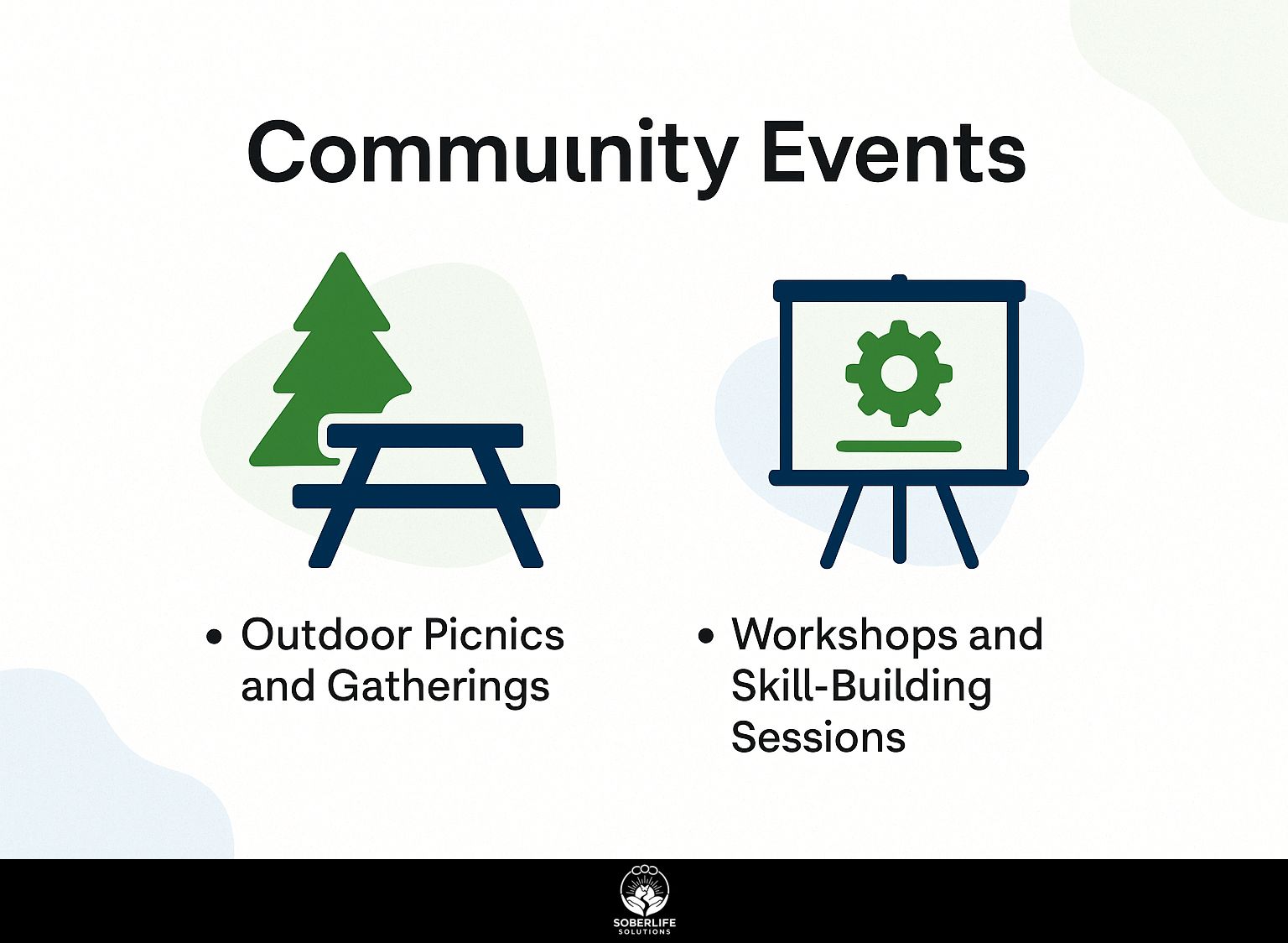
Community events are important for building connections and creating a supportive environment for those in recovery. These events often provide opportunities for participation, such as those highlighted during Recovery Month, where individuals can engage in activities that foster unity and healing.
Outdoor Picnics and Gatherings
Organizing outdoor picnics and gatherings can create a relaxed environment for individuals to celebrate recovery milestones together.
To plan a successful gathering, start by selecting a suitable location, such as a local park that offers picnic tables and green space.
Next, create a guest list, considering both close friends and support group members. Plan engaging activities like sharing stories, playing outdoor games, or even organizing a group cooking session.
It’s also essential to coordinate food options-consider using tools like Eventbrite to manage RSVPs and meal contributions. Choosing a date that suits most people will help more people join in and have a good time.
Workshops and Skill-Building Sessions
Workshops that teach practical skills can help people in recovery by giving them useful resources to progress in their path.
Think about providing various workshops like cooking classes to help people develop healthy eating habits, financial education sessions to improve their money handling skills, and stress management classes that teach coping methods.
Partnering with local organizations like Pyramid Healthcare can help provide expert speakers who facilitate these sessions. Promote the workshops through platforms like Meetup or Facebook Events to reach a broader audience.
This method develops key abilities and creates a helpful network for people recovering.
Creative Expression
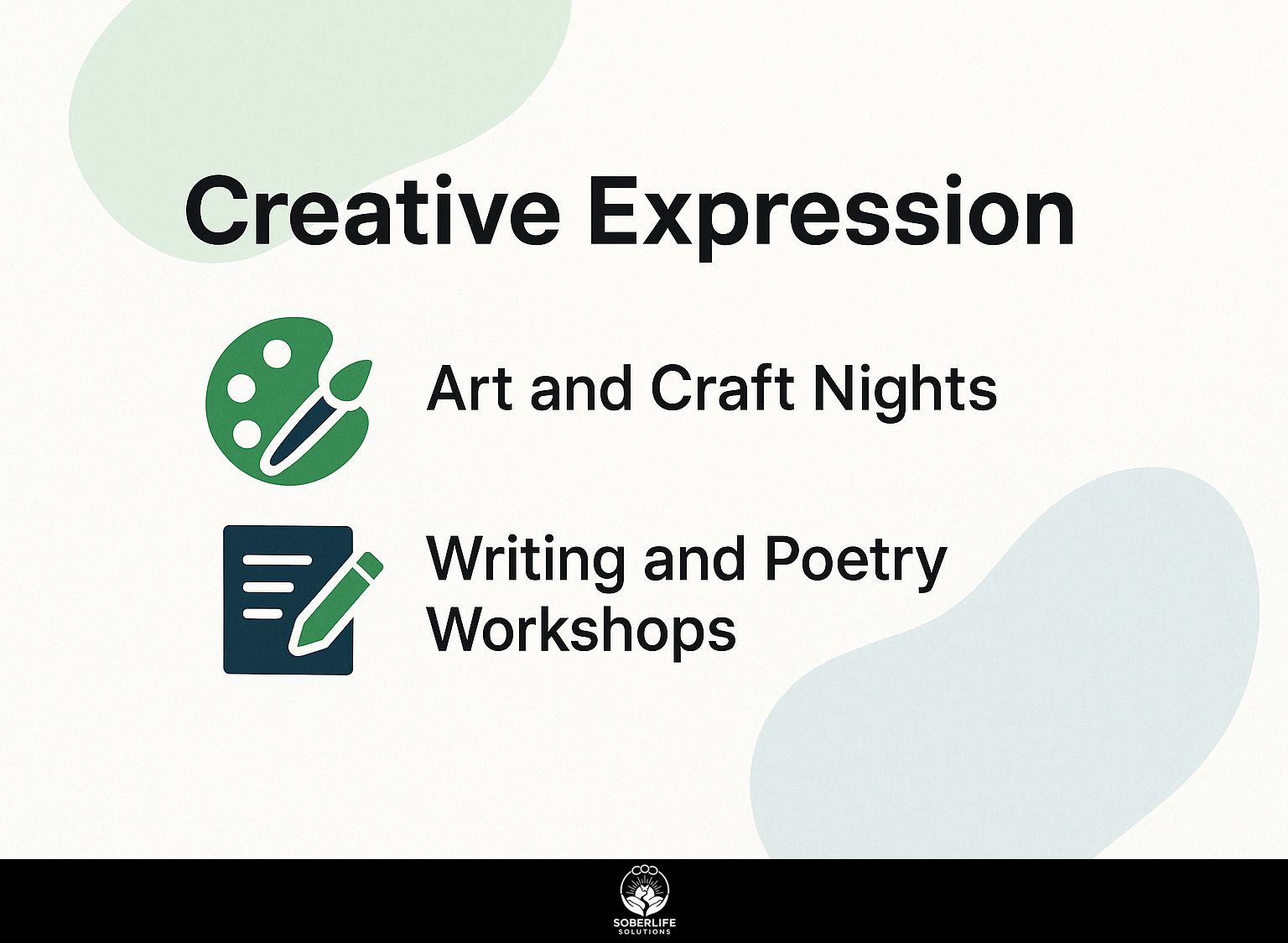
Creating art can help people heal by letting them express their feelings and experiences in different ways. This therapeutic benefit is supported by recent research published on ScienceDirect, which explores the role of art therapy as a valuable resource in mental health treatment. For a more comprehensive understanding of how these therapeutic methods can be integrated into recovery plans, consider exploring our insights on integrative therapies in addiction recovery.
Art and Craft Nights
Organizing art activities can support people in recovery by allowing them to share their emotions and build relationships in a calm environment.
- Select a theme, such as painting or pottery.
- Gather materials like canvases, paints, brushes, and any other necessary supplies.
- Promote the event using tools like Canva to create eye-catching social media posts and flyers.
- Set a date and secure a comfortable venue.
- Consider inviting local artists to demonstrate their talents or give guidance, creating an engaging event that encourages creativity and helps people build connections.
Writing and Poetry Workshops
Writing and poetry workshops provide a place where people can express their recovery experiences and share personal stories in a caring setting.
To improve these workshops, think about setting up a monthly meeting with platforms like Zoom or at local community centers.
- Pick a subject for every meeting and encourage people to share their written work using the provided prompts.
- Provide resources such as writing journals and articles on storytelling techniques.
To build a sense of community, set up a group chat for continued support and sharing outside of planned meetings. This helps people feel supported and builds a helpful community, making recovery easier to relate to and more successful.
Physical Activities
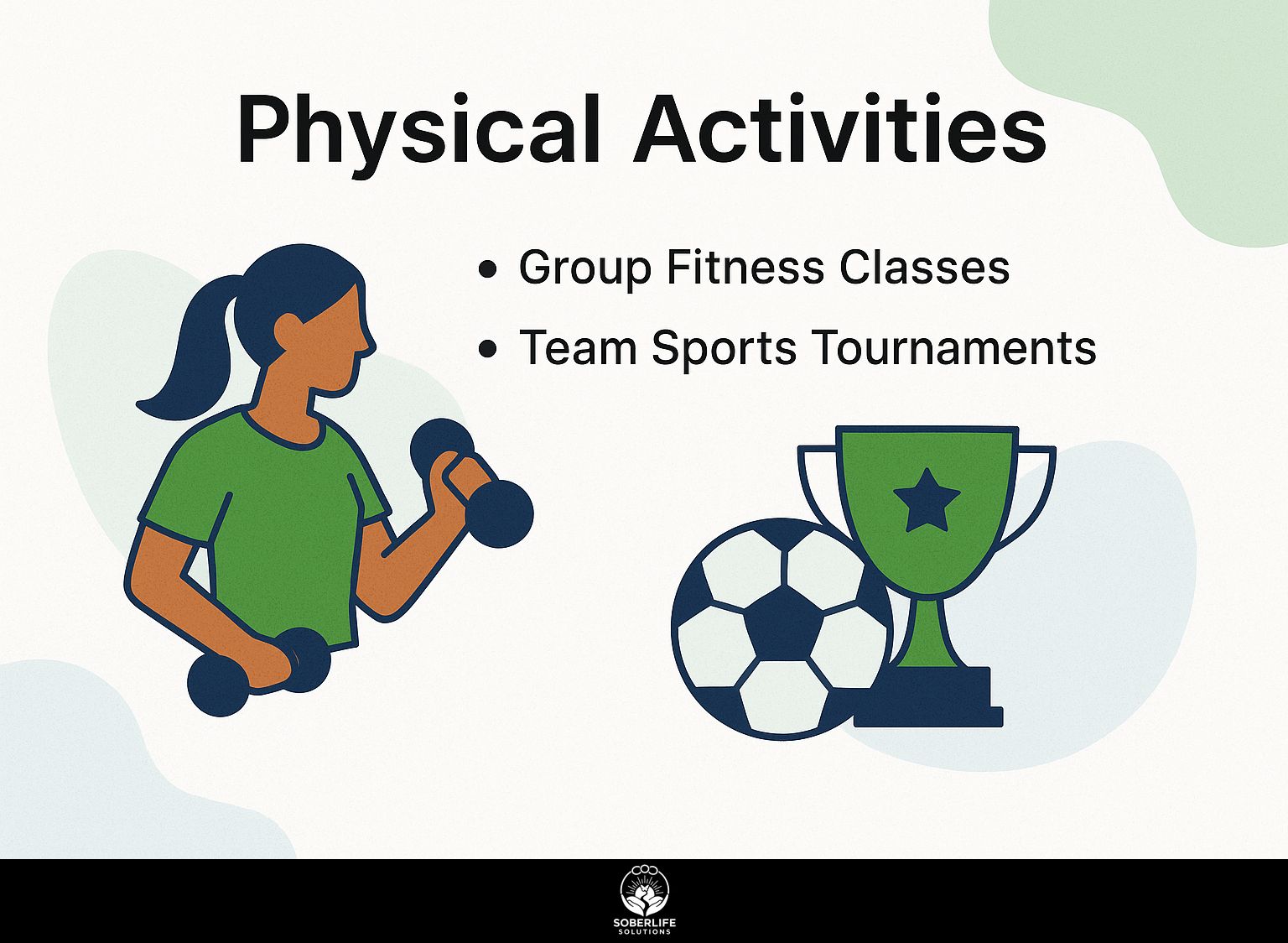
Physical activities improve health, bring people in recovery together, and increase their motivation. According to the Mayo Clinic, exercise can ease symptoms of depression and anxiety, further highlighting the mental health benefits of staying active. Worth exploring: Recovery Walks: Purpose, Activities, and Participation to understand how group activities can enhance the recovery journey.
Group Fitness Classes
Organizing group fitness classes can provide a fun and engaging way for individuals in recovery to stay active and build a supportive community.
Working with nearby gyms or fitness teachers can improve your results. For example, you could organize weekly yoga sessions at a local studio. Many teachers would welcome the opportunity to teach in return for the publicity.
Zumba sessions can give participants energy and make the setting lively. Use tools like Mindbody for easy scheduling and registration, so participants can sign up and get updates without hassle.
Many successful programs see better attendance by sharing class information on social media and building a community feel among participants.
Team Sports Tournaments
Organizing team sports competitions can encourage cooperation and create long-lasting bonds among those in the recovery group.
To organize a successful tournament, start by selecting your sport, such as basketball, and then secure a venue that can accommodate multiple teams.
Promote the event through social media, community centers, and local recovery organizations to maximize exposure.
To sign up your team, use simple online forms from Google Forms or Eventbrite to make the process easier.
Think about giving out rewards like medals or gift cards to encourage people and make the activity more enjoyable.
Mindfulness and Relaxation
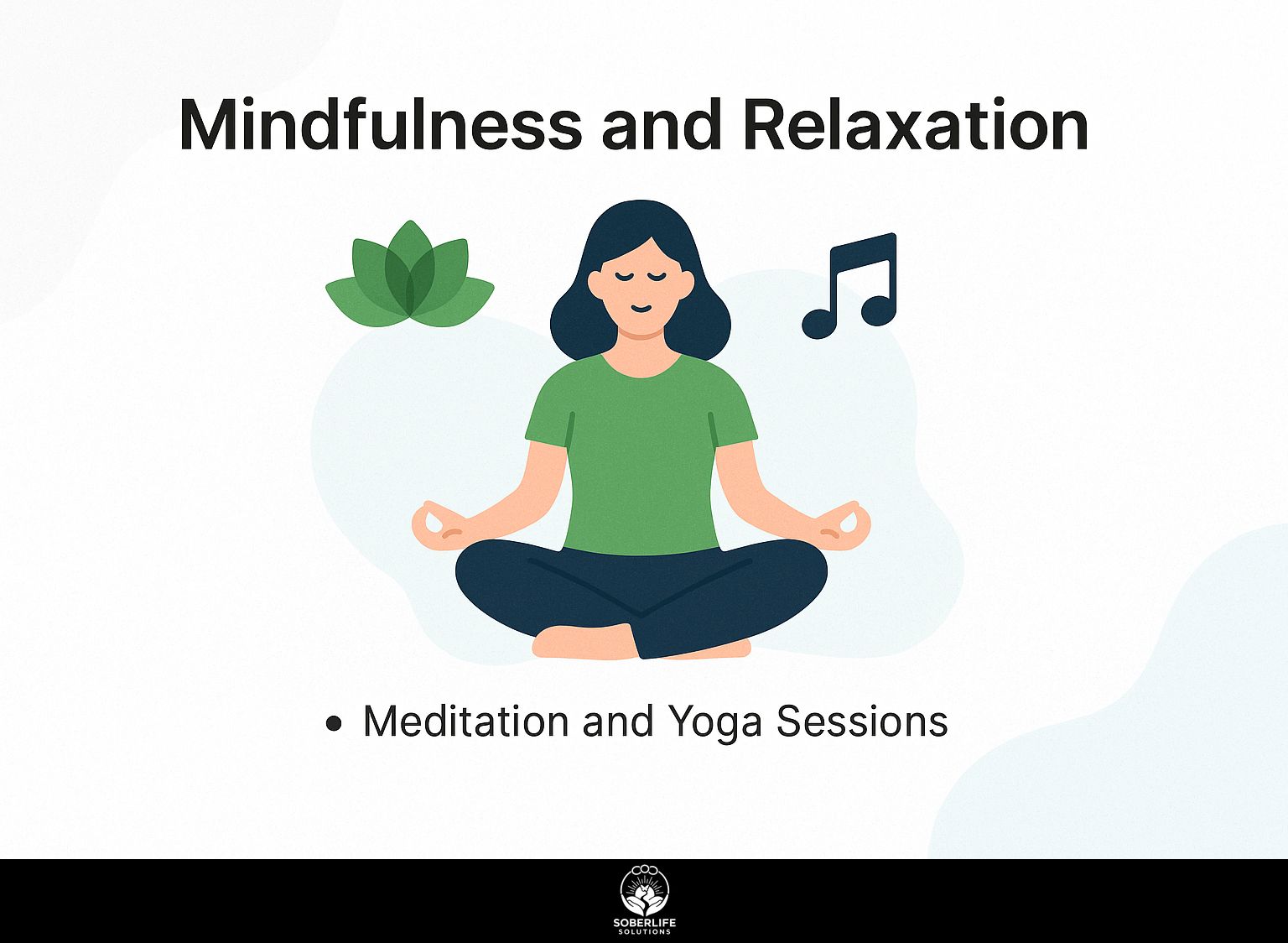
Practicing mindfulness and relaxation can greatly improve mental health and help people in their recovery process. One of our most insightful case studies shows how mindfulness-based strategies can effectively contribute to relapse prevention.
Meditation and Yoga Sessions
Regular meditation and yoga sessions can provide recovery community members with essential tools for managing stress and promoting emotional well-being.
To effectively integrate these practices, consider organizing weekly sessions led by a qualified instructor or utilizing online resources such as Headspace.
Create a calming environment by dimming lights, using soothing music, and incorporating aromatherapy. Ask participants to talk about their experiences after the session to build community support.
By offering organization and supporting open discussions, you help improve personal strength and support group healing.
Celebratory Milestones
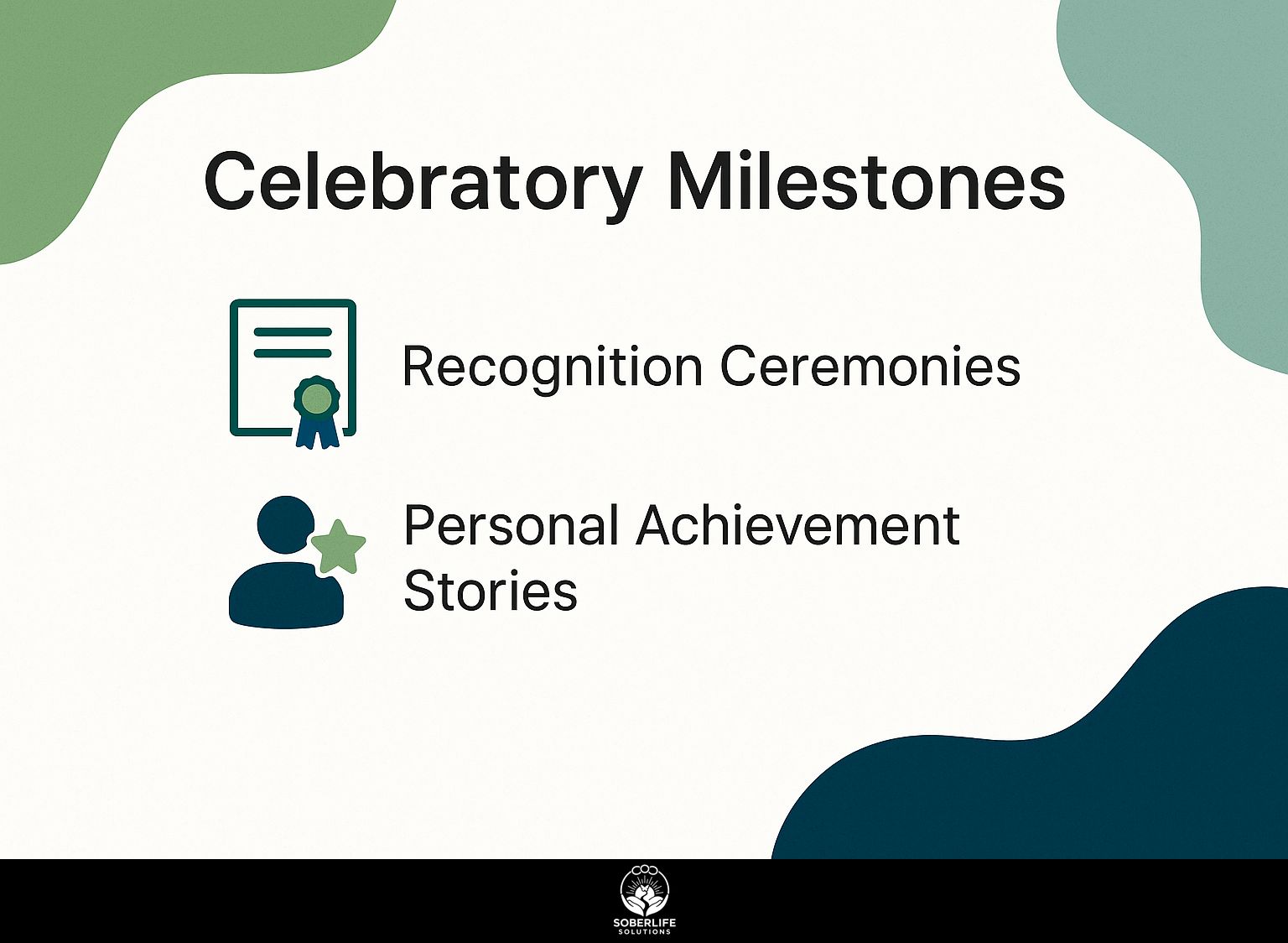
Recognizing individual achievements during recovery encourages good practices and builds community connections. Celebrating these milestones can also be tied to significant events, such as National Recovery Month, which highlights the importance and key events in recovery.
Recognition Ceremonies
Organizing recognition ceremonies can provide a platform for individuals to celebrate their recovery achievements in front of their peers.
To create a meaningful recognition ceremony, start by selecting a date that allows ample preparation time.
- Next, invite inspirational speakers-local leaders or former beneficiaries who can share their stories.
- Recognize participant achievements through awards or certificates, which add a tangible element to the celebration.
- Share details about the event on social media to increase the number of attendees and let people know about it.
- Working with local recovery centers can increase participation, creating a friendly environment where people feel important and included.
Personal Achievement Stories
Telling personal success stories can motivate others and create a feeling of hope among people in recovery.
To effectively share these stories, consider starting a blog or video series that showcases diverse narratives.
Tools like WordPress or Squarespace are excellent for blogging, offering user-friendly formats to tell your story. You can use platforms like YouTube or Instagram for video formats, engaging a wider audience.
Encourage participants to share their experiences during community events and create support groups that focus on storytelling. This approach helps people and creates a strong community of support and encouragement.
Frequently Asked Questions
What are some unique ways to celebrate recovery in a group setting?
There are many creative ideas for celebrating recovery in a group, such as hosting a recovery-themed movie night, organizing a gratitude circle, or holding a talent show where individuals can showcase their talents in a safe and supportive environment.
How can we include mindfulness and self-care in our recovery celebration?
Consider hosting a group yoga or meditation session, or creating a vision board to set intentions for continued self-care and growth. Another idea is to organize a self-care fair where people can try out activities like aromatherapy, journaling, or art therapy.
Can we involve the community in our recovery celebration?
Absolutely! You can reach out to local businesses and organizations to see if they would be willing to donate goods or services for raffles or auctions, with proceeds going towards a recovery-related charity. You could also organize a community service project or fundraiser to give back to the community and promote the message of recovery.
How can we make our recovery celebration inclusive for all members?
Include everyone in the planning process and ask them what activities or themes they would like. Consider having a potluck where members can bring their favorite dishes or cultural foods to share. You could hold a party with a specific theme, inviting everyone to wear clothes that symbolize a significant achievement in their recovery process.
Are there any fun and creative ideas specifically for celebrating anniversaries in recovery?
Consider some creative ways to celebrate recovery anniversaries, such as organizing a group scavenger hunt, hosting a relay race focused on recovery, or having a fun talent show where participants can showcase their unique and quirky skills and recognize the progress they’ve made in their recovery.
How can we include the idea of forgiveness in our recovery event?
You could create a “forgiveness wall” where members can anonymously write down someone they need to forgive (including themselves) and then rip it off and symbolically release it. Another idea is to have a group discussion on the benefits of forgiveness for our recovery process.


